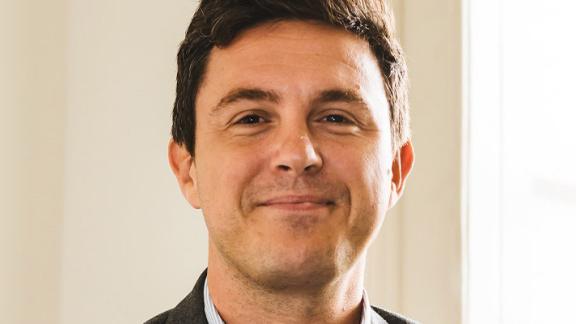Unlocking the power of volunteering will help tackle the challenges facing our NHS

Helpforce works with health and care organisations to increase volunteering opportunities and accelerate their impact. While there are some good examples of volunteers helping to improve outcomes for patients and staff, there remains huge untapped potential.
Health and care staff and services are currently being stretched to breaking point. Brilliant but exhausted hospital staff are bracing themselves for higher levels of COVID-19 while battling a backlog of patient care. Bed occupancy at acute hospitals is already at almost 96 per cent – an unprecedented situation not normally seen until the middle of winter. And the number of people waiting for hospital treatment in England recently hit a record high of 5.7 million.
Yet despite the major pressure on staff and resources, we are failing to maximise the proven power of volunteering. This is a major missed opportunity. There are a wide range of volunteer roles already designed and available to tackle many of the challenges our health and care system faces, but volunteering isn’t being prioritised or properly integrated across anywhere near enough trusts or community settings.
Vital additional support
We have already seen the huge power of volunteering since the start of the pandemic, particularly with thousands of individuals stepping up to support the national vaccination programme. Now we must harness the support of committed volunteers to help our health and care system combat exceptional challenges. Volunteers will help us all to recover faster from the major impacts of the pandemic, and they need to be an integral part of health and care.
It’s about committed volunteers working alongside staff to make healthcare more effective, efficient and personalised.
With NHS staff and resources under immense pressure just to deliver the core medical treatment that people desperately need, volunteers can provide vital additional support to make that treatment more effective or even reduce the need for it in the first place. This isn’t about volunteers substituting excellent professional staff. It’s about committed volunteers working alongside staff to make healthcare more effective, efficient and personalised.
Improving the patient experience
Volunteers free up time for staff to focus on clinical duties and help to improve the patient experience. For example, volunteers can free up almost 30 minutes per nurse per day, and can speed up patient discharge by 44 minutes. Volunteers help vulnerable patients to eat and drink while in hospital. They prevent falls among more frail individuals who are settling back into the community, and in doing so they reduce readmission rates. People supported by volunteers after their discharge report improved levels of social contact, confidence and happiness.
If volunteers were a medical treatment, they would be hailed as a breakthrough.
Patients with volunteer support are more likely to recommend the hospital they received care in. And 71 per cent of nurses say that volunteer support helps them feel less stressed. Volunteers can also provide practical and emotional support to people on waiting lists, to minimise their anxiety and help to ensure they receive treatment more swiftly. If volunteers were a medical treatment, they would be hailed as a breakthrough.
At Helpforce we see first-hand the major positive impact that volunteers can have in all kinds of roles. But while there are some great examples of volunteers being used to improve outcomes for patients and staff, we also know that there is huge untapped potential. Too many health and care settings are currently missing out on the proven positive impacts that well-integrated volunteers offer.
Integrating volunteering into care pathways
So what needs to change? We need volunteering to be prioritised at the top table at health and care organisations, so it is seen as an essential component of health and care, not a ‘nice to have.’ We need volunteering to be integrated into many more health and care pathways, and we need an increase in investment within volunteering management infrastructure. NHS resources are of course hugely stretched, but if we fail to invest time and resource now, the immense challenges facing our staff and patients will only get worse.
By partnering with more NHS trusts across the UK, Helpforce and other organisations like us can work to create high-impact volunteering opportunities and design new volunteering roles to tackle healthcare challenges, improve outcomes for patients and support staff wellbeing.
Volunteering offers a viable route to help get the UK get back to health. If ever there was a time to seize the moment for volunteering across health and care, this is it.
Mark Lever is chief executive of Helpforce. You can follow Mark on Twitter @Mark_Helpforce



